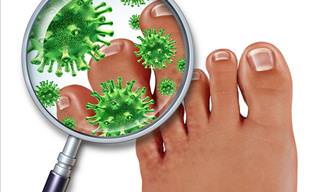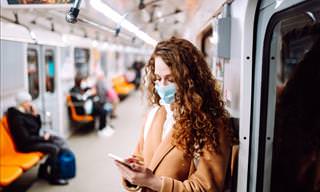The COVID-19 vaccine rollout is currently underway across the world. This has been a massive shot in the arm (quite literally, too) that the world so desperately needed. And it remains our best shot at ending the long and draining coronavirus pandemic.
However, there’s a tricky part about the COVID-19 vaccine that’s been causing confusion as of late. Thus far, all authorized COVID-19 shots in the world are two-dose vaccines. The first dose has been developed to make your body identify the virus and build up the immune system. The second dose, called the booster shot, is necessary as it further boosts the immune system.
The second dose for most vaccine candidates as of now is scheduled about 21 or 28 days after the first. The problem is that there’s still a lack of clarity about the need of getting both doses. With limited vaccine stocks available in most countries and with the vaccine appointment being so coveted right now, most people are just happy getting their first dose.
There have already been reports coming in of canceled COVID-19 vaccine appointments of the second doses. Many people might feel that getting one dose is enough while others might miss their second appointment for some unavoidable reasons. Furthermore, there’s growing confusion about the risks of delaying the second dose. Here's what experts can say for certain at the moment, regarding those burning issues.
What will happen if you delay the second dose of the COVID vaccine?
According to experts, delaying the second dose of the COVID vaccine by too much is risky. In fact, it could lead to new variants spreading even faster. After just one dose of the vaccine, our immune response is weaker than it would have been after two shots. This may allow the mutated variants to thrive.
But then, there’s another part to this argument. With limited vaccine supplies, many experts feel that since protection is already very good after one shot, delaying the second dose and ensuring that more people get vaccinated first might be a good tactic as it would further reduce serious illness and death.
The UK government, for example, is letting people get the second dose of the COVID-19 vaccines authorized in the country up to 12 weeks after the first dose. With this approach, they hope to give some degree of immunity to a larger part of the population, in a shorter span of time.
The Centers for Disease Control and Prevention (CDC) states that the second dose of the authorized COVID-19 shots should be given at the intervals tested in trials. However, in exceptional circumstances, like when people can’t get their second dose for some reason on the scheduled date, it can be given up to six weeks after the first dose.
How long can you delay the second dose?
Currently, we don't have any data to show that there’s a time that’s too late to take your second dose. There is some research that suggests we could wait 42 days after the first dose. But the data on the efficacy of the vaccines beyond the recommended time of 21 or 28 days is limited. So, if too much time has passed (more than 90 days, for instance) after your first COVID-19 vaccine shot, it isn't clear yet if you’ll have to start over.
“Second doses administered within a grace period of four days earlier than the recommended date for the second dose are still considered valid,” the CDC says on its website.
So, basically, if you miss your scheduled appointment for the second dose of the vaccine for some reason, try and get it rescheduled within the next couple of days just to be on the safe side.
Bottom line: Don’t defer the second dose entirely

Whether you are planning to delay or skip the second shot of the COVID-19 vaccine, here’s a simple fact you must keep in mind: it’s essential to get both your vaccine doses if you intend on getting full protection from the disease.
The latest data published by the two leading COVID-19 vaccine candidates – Pfizer-BioNTech and Moderna – will help you understand this more. The Pfizer-BioNTech vaccine is only about 52% effective after the first dose and becomes 95% effective after the second shot. The Moderna vaccine, meanwhile, is about 80% effective after the first shot and is more than 95% effective after both doses.
So, you may get some level of protection from one shot, but you’ll certainly need the second dose to achieve complete immunity against the virus. Unless authorized one-dose vaccines arrive sometime later, this is the way ahead as of now.
Even if you may experience some side-effects after getting your first dose, don’t be alarmed. It’s quite normal. Take a look at our article on the COVID-19 vaccine side-effects for more information.
In case you experience some severe allergic reactions after getting the first dose, you should consult your doctor and ask them if you need to skip the second booster shot. But the chances of that happening are slim. You may also experience some more side-effects after the second shot but that too should disappear in a day or two.
All things considered, remember that experts are still learning about COVID-19 and everything that comes with it. So, to keep yourself completely safe from this dangerous virus, keep following the safety measures and take both the vaccine doses as instructed whenever you get your appointment.
Share this useful information with your friends and family
 Go to BabaMail
Go to BabaMail




























